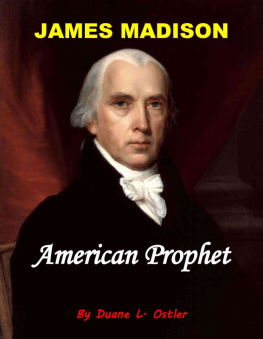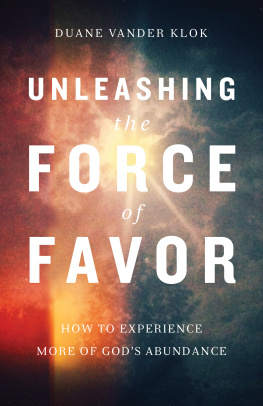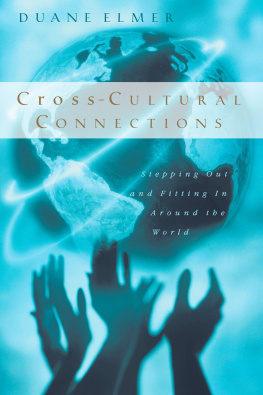Duane R. Clarridge - A Spy for All Seasons: My Life in the CIA
Here you can read online Duane R. Clarridge - A Spy for All Seasons: My Life in the CIA full text of the book (entire story) in english for free. Download pdf and epub, get meaning, cover and reviews about this ebook. year: 2002, publisher: Scribner, genre: Non-fiction / History. Description of the work, (preface) as well as reviews are available. Best literature library LitArk.com created for fans of good reading and offers a wide selection of genres:
Romance novel
Science fiction
Adventure
Detective
Science
History
Home and family
Prose
Art
Politics
Computer
Non-fiction
Religion
Business
Children
Humor
Choose a favorite category and find really read worthwhile books. Enjoy immersion in the world of imagination, feel the emotions of the characters or learn something new for yourself, make an fascinating discovery.
- Book:A Spy for All Seasons: My Life in the CIA
- Author:
- Publisher:Scribner
- Genre:
- Year:2002
- Rating:3 / 5
- Favourites:Add to favourites
- Your mark:
- 60
- 1
- 2
- 3
- 4
- 5
A Spy for All Seasons: My Life in the CIA: summary, description and annotation
We offer to read an annotation, description, summary or preface (depends on what the author of the book "A Spy for All Seasons: My Life in the CIA" wrote himself). If you haven't found the necessary information about the book — write in the comments, we will try to find it.
A Spy for All Seasons: My Life in the CIA — read online for free the complete book (whole text) full work
Below is the text of the book, divided by pages. System saving the place of the last page read, allows you to conveniently read the book "A Spy for All Seasons: My Life in the CIA" online for free, without having to search again every time where you left off. Put a bookmark, and you can go to the page where you finished reading at any time.
Font size:
Interval:
Bookmark:
After all this time, you can still hear my hometown in my voice. The clipped Yankee tones of Nashua, New Hampshire, have stayed with meas have many of the values and traditions that were instilled in me there.
I was born Duane Ramsdell Clarridge on April 16, 1932. The following year, my parents and I moved into a house on the corner of Webster and Elliot Streets that had been built for my father by my grandfather, a contractor. It was brick, and it was double layered to keep out the New England winter. My father, a dentist, was very proud of that. The house was also an ingenious example of recycling: those two tiers of bricks had been scavenged from a church in southern Nashua that had burned down.
My father, Duane Herbert Clarridge, was the fifth of six children born into a family of some means in Milford, Massachusetts. Grandfather Clarridges hundred-acre farm was situated on a knoll, and the wood-framed house was reached by a graceful, long gravel driveway, which wound around past the barn, garages, gas pumps, dynamite storehouse, and various outbuildings.
The main house was large and spacious. The huge living room had an impressive brick fireplace; the dining room could seat thirty-five people comfortably. Upstairs were innumerable bedrooms. In addition to his contracting business, Grandfather was a sort of gentleman farmer. A few token cows, pigs, horses, and chickens were always around. The property also contained some heavily wooded areas and a stream. In the middle of the woods was a log cabin that my father and his older brother Lee had built as a hideaway.
Grandfathers name was Arthur Preston Clarridge, but everyone, including his children, and his wife, Myrtle, called him the Boss. To some extent all of his children were intimidated by him. I dont think that my fathers childhood was particularly happy. Grandmother Clarridge came from old New England stock of near-Mayflower vintage. Her maiden name was LeBaron, and she traced her lineage back to a French doctor of the same name who arrived in the Massachusetts Bay Colony before 1630. She ran her home like a tight ship, and she was always busy with the domestic details of managing the large establishment. She was a great cook, but not particularly warm or affectionate. Being the next-to-last kid, my father was almost a nonentity within the family. His great refuge was school and books, which were, apparently, provided in some profusion. He attended a one-room schoolhouse and always did very well academically.
In the long run, a lack of attention from Grandfather may not have been such a bad thing for my father. The Boss ran the family establishment somewhat along baronial lines, basically indenturing his two oldest sons, Fred and Lee, to his construction business and building them nice houses at the bottom of the knoll. His daughters Hazel and Sybil and their husbands had homes on another side of the knoll, but not on the family property. Hazels husband also frequently worked for the Boss. The only two children who really became independent were my father and his oldest sister, Frances, a teacher, who escaped Milford. She was instrumental in getting the Boss to agree that my father should go to college. He went to Tufts for a year and then transferred to Harvard, graduating from Harvard Dental School in 1927.
My mother, Alice Scott Ramsdell, was educated beyond high school, completing her studies in Boston in 1929. She met my father when he came to Nashua to join another dentist in his practice and married him shortly thereafter. She was a good-looking woman with a gorgeous figure. I came to know that in great detail because when I was about thirteen, I ran across a picture album in her secretary. The entire album consisted of nude pictures of her that my father had taken in the forest on Grandfather Clarridges farm in Milford. Serious photography was one of my fathers hobbies.
Like those of many women of her day, my mothers interests were centered around family and community. Besides caring for my sister and me, she was active in a Nashua ladies organization called Good Cheer, which supported a number of visiting practical nurses, and she spent a lot of time on her own going around and helping the elderly.
My parents were active Republican Party stalwarts and campaigners. When Wendell Willkie was running for president in 1940, they gave a party for him. I remember being introduced to him and shaking his hand. This was a special event, but political gatherings at our home were not all that unusual. My maternal grandmother, Alice McQuesten, had married George Ramsdell, the son of a former governor of New Hampshire (Republican, of course), during the 1898 Spanish-American War.
My maternal grandmother was widowed at an early age, but never remarried. She lived about a block away from us in a fine turn-of-the-century cottage with a slate roof. Grandmother Ramsdell, whom we called Nana, was by any measure a formidable woman. She had white hair, and one of the family myths was that her hair had turned white overnight after a fall down the steps leading to her front door. Educated as a teacher, she was born in the tiny hamlet of Litchfield, New Hampshire. She attended school in nearby Merrimack, a feat that required her to row across the Merrimack River, even in winter, twice daily. Moreover, she never learned how to swim.
Grandmothers son, my uncle George, lived with and took care of her. He did odd jobs for my father and worked as a deliveryman for his uncle, who was a successful grocer and butcher in Nashua.
Nana doted on me, and we spent a lot of time together. I remember her staying with me in the hospital when I had my tonsils taken out at age three. She slept in a chair at my side, held my hand, and fed me ice cream to soothe my sore throat. Of course, one reason why my mother didnt perform this duty may have been that my sister, Cynthia Delight (Delight because my father was delighted to have the daughter he wanted), was just a newborn at the time. She was born in 1935, and I remember being profoundly disappointed at her homecoming. I expected a playmate and here was this squiggly little baby.
* * *
In the 1930s most children didnt go to preschool, but stayed home until they went to elementary school. In Nashua at that time, kindergartens were just being organized. After some kind of evaluation, I began first grade in 1937, a year earlier than my peers, at Mount Pleasant Elementary School. Being a year ahead had its pluses and minuses throughout my childhood and adolescence. There was no question that I could do the schoolwork, but I didnt do nearly as well with the social work of growing up. I was a rather shy and withdrawn childI played with other kids, but never formed the great boyhood friendships that other children did. Years later, my father described me as a late bloomer.
I was a great readeras was my fatherand a self-reliant child. I was happy playing with my electric train, my soldiers (that I had molded out of lead), my Erector set, my blocks, and, of course, my books.
As I grew, the nearby woods changed from frightening to invitingthey were marvelous places for adventures, both by myself and with neighbor children. When the United States entered World War II, we started playing soldier, and the woods and fields near Grandmothers were great for acting out our fantasy battles. We dug foxholes and put up tents. Slowly I developed my own little team of soldiers from the children in the neighborhoodyou might say I recruited them. In that respect it was an idyllic youth. I had fields and forests to play in, and time to daydream and invent games in a safe environment.
My father followed World War II and events in Europe closely. I knew as much as a seven-year-old could grasp of the Russo-Finnish War, which began in 1939. Our family was pro-Finland, and we children donned white sheets over our ski parkas and pretended to be the Finnish soldiers we admired. To this end, my father made me a copy of a French machine gun from wood. One of his hobbies was building fine American colonial furniture. I grew up with a fondness for wood, which has remained with me throughout my life. I attempt wood sculpting when I have the time.
Font size:
Interval:
Bookmark:
Similar books «A Spy for All Seasons: My Life in the CIA»
Look at similar books to A Spy for All Seasons: My Life in the CIA. We have selected literature similar in name and meaning in the hope of providing readers with more options to find new, interesting, not yet read works.
Discussion, reviews of the book A Spy for All Seasons: My Life in the CIA and just readers' own opinions. Leave your comments, write what you think about the work, its meaning or the main characters. Specify what exactly you liked and what you didn't like, and why you think so.











